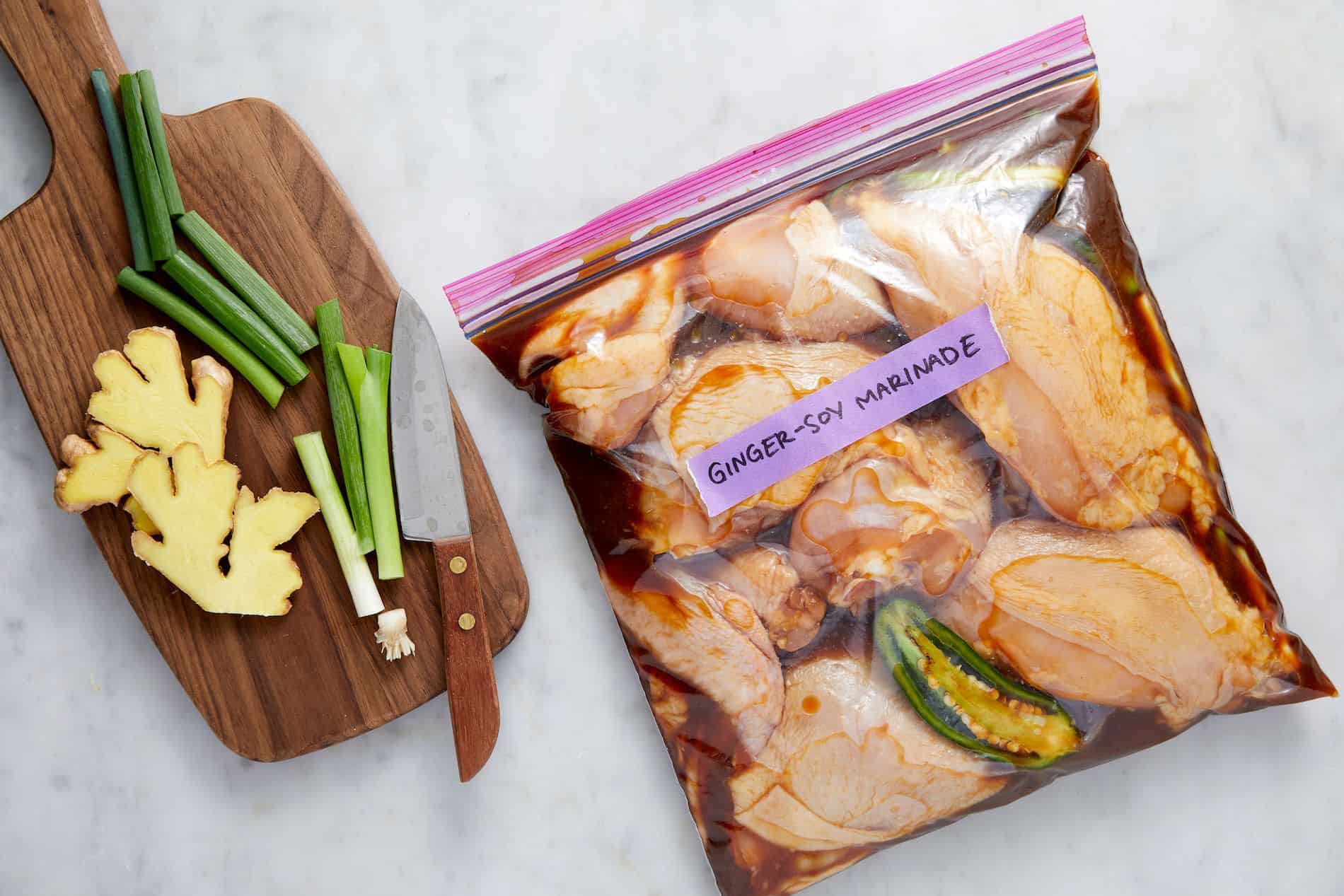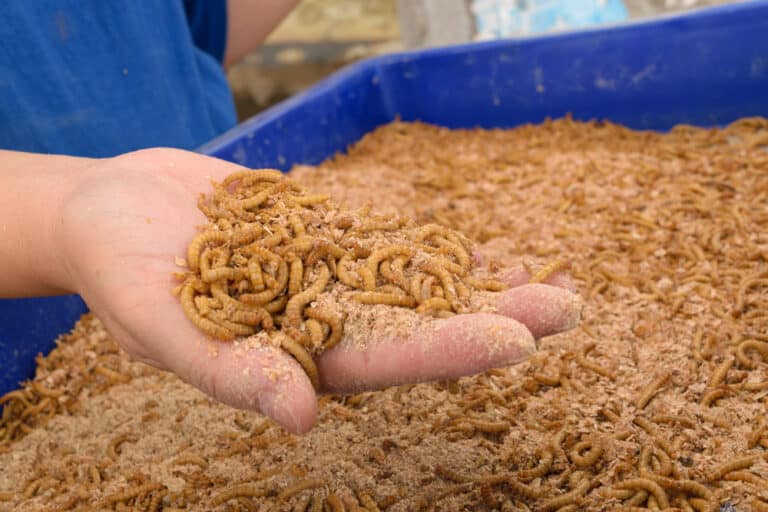For many people, chicken is their go-to meat if they want a source of low-calorie protein. However, it’s a mild-tasting meat that generally needs some flavor added to it. One of the best ways to do that is marinating but exactly how long to marinate chicken?
That’s what we’re going to find out here. We’ll look closer at the marinating time, how to do it, along with the dos and don’ts. Let’s get started by tackling the main question!
How Long Should We Even Marinate Chicken?

Are you working on a dish using chicken but have no idea how long you should marinate? In general, you’ll have to leave it for about 12 to 24 hours to fully marinate. While that’s true, even if you just let it sit for 30 minutes, your chicken will still get plenty of flavor and moisture.
However, avoid over-marinating since you’ll get tougher chicken meat, and that’s not good for any dish you plan to make.
This is especially true when your marinade is more on the acidic side. Also, if you soak your chicken meat too long in an enzymatic marinade, you’ll get mushy and gross meat.
So, the bottom line is that you should ideally marinate for 12 to 24 hours. But if you don’t have that much time, marinating it for any length of time will add flavor. It’s always worth it to marinate, but try and leave it as long as you can, up to a day.
It Can Depend on the Parts

The time to marinate your chicken is affected by the parts you use. With bone-in cuts like drumsticks, wings, and breasts, you’ll need to marinade these longer than the boneless chicken parts.
When you have smaller chicken pieces, these will take lesser time to marinate. If you can’t leave it overnight, most chicken recipes require chicken meat to marinate for at least two to six hours.
Generally, chicken meat is less dense compared to beef, so it doesn’t necessarily have to get soaked overnight.
However, since the cut size will make a difference, never assume that a specific time will work for all other cuts. To make things easier for you, we made a little cheat sheet to know how long the minimum amount of time you should be marinating chicken is.
- Breast – When cooking breast, the minimum time is about 30 minutes to 2 hours.
- Thigh – Thigh or drumstick parts should get soaked for at least 30 minutes to 4 hours.
- Entire Chicken – If you’re cooking the entire chicken, it’s best to marinate it for at least 3 to 12 hours, depending on how acidic your marinade is.
How to Properly Marinate Chicken

Choose the marinade you want to use before setting the chicken in. From there, you can follow our quick and simple guide to help you marinate.
- First, get the chicken meat out of its packaging. From there, make sure to pat it dry.
- Next, you’ll need to grab a bowl and mix in all the ingredients thoroughly.
- Pierce your meat using a fork (or similar) to let the marinade penetrate the chicken. From there, let it sit for as long as needed.
It’s better to avoid using metal containers when marinating chicken. Why? Because acid in your marinade can have a reaction with the metal container, thus, giving your chicken an off flavor.
What You Should Remember When Marinating Chicken

Before anything, first, prepare all the necessary ingredients after choosing your marinade recipe, then search for a sealing dish that’ll fit the chicken cuts.
When creating the marinade, make sure you’ve prepared enough to entirely cover the meat. You wouldn’t want some parts of your meat to have less flavor than needed, right?
- Chicken Cuts – You shouldn’t forget to choose the chicken cut for your dish. If your chicken is leaner, it’s best to start marinating the meat closer to the time you’ll start cooking. Some cuts can get marinated for as little as 2 hours, especially when your marinade is more acidic than usual.
- Longer Periods for Marinating Fatty Cuts – If you’re using thighs or drumsticks for your dish, remember that these chicken parts have more fat than usual. Any fatter pieces of meat will need marinating for longer.
- Avoid Over-marinate – Remember, chicken meat can become mushy or even tough when getting over-marinated, and if it’s been sitting for over 48 hours, it’s best to throw it away.
Do’s and Don’ts When Marinating Chicken

There can be plenty of misconceptions when it comes to marinating chicken so here are a few dos and don’t you need to follow.
Do’s of Marinating
- Do practice food safety – Since you’re dealing with raw chicken, remembering to practice food safety is paramount. Always wash your hands before and after touching the chicken.
- Do include acid – Be sure to include an acidic component in your marinade. This will tenderize the meat and help infuse the flavor deeper into the chicken meat. Examples of acidic ingredients include vinegar, citrus juice, wine, buttermilk, and yogurt.
- Do have a high smoke point – Your marinade should have oil with a high smoke point since these are grill and flame-friendly. Oils with high smoke point include canola, soy, peanut, and safflower.
- Do refrigerate – Marinate in the refrigerator to prevent the growth of bacteria. Consistent low temperatures will keep the chicken safe from bacteria until it’s time for cooking.
- Do have enough – When preparing your marinade, be sure to have around half a cup for each pound of chicken.
- Do ensure full coverage – While marinating, turn the chicken a few times to ensure that all surfaces have enough contact. Doing this will also maximize the flavor of the chicken.
- Do pick a good container – Choose the right type of container for marinating. Use resealable plastic bags, glass containers, or reusable plastic containers. Anything that closes tightly and isn’t metal is a good option.
Don’ts of Marinating
- Room temperature – Never marinate at room temperature. This will cause dangerous bacteria to grow, leading to foodborne illnesses.
- Don’t use too much salt – It will cause the chicken to dry out since salt draws out moisture. And when meat is dry, it doesn’t absorb flavor well. Instead, add salt after cooking to enhance the taste of your dish.
- Don’t freeze – Don’t keep marinated chicken in the freezer since it will be mushy when exposure to acids is prolonged.
- Don’t use metal – Avoid using metal containers when marinating. Metal can cause a chemical reaction with the acids in the marinade, which negatively changes the color and flavor of the chicken.
- Don’t use leftovers – Don’t use leftover marinades as a sauce when you finish cooking. Since marinades have contact with raw ingredients, they may contain bacteria like salmonella. It’s best to discard the marinade once you finish using it.
- Don’t be afraid – Don’t be afraid to try new ingredients and flavors. When making marinades, the sky is the limit. Experimenting might even lead you to discover a new flavor!
FAQs
1. How long can you leave marinated chickens in the refrigerator?
You can keep marinated chickens in the fridge for a maximum of two days, but ideally you don’t want to leave it longer than a day. Uncooked marinated chickens and marinade should be discarded after two days.
2. Is it safe to reuse a chicken marinade?
As mentioned earlier, you shouldn’t reuse marinade. The raw chicken that you soaked in it may have bacteria. And since the raw meat is constantly in contact with the marinade, some bacteria may be transmitted. It’s better to cook your marinade because doing so will kill any bacteria, then, safely repurpose it.
Boil the marinade for five minutes before reducing it to a glaze to kill any pathogens like salmonella or E. coli. You can get these into the marinade from the raw chicken. When your chicken is about to finish cooking, coat it with the repurposed marinade using a clean basting brush to enhance flavor.
3. Do you need to poke holes in the chicken when marinating?
Poking holes is not mandatory, but it can help the chicken absorb more flavor when marinating. It’s helpful if you can’t wait several hours to marinate your chicken since it penetrates flavor better within a shorter time.
4. Is marinating chicken for two hours enough?
It depends on the marinade, the cut of chicken, and how much chicken there is. For example, two hours for a weak marinade on a whole chicken won’t be enough. However, a strong marinade on diced pieces of chicken breast would be perfectly fine.
Conclusion
Using chicken for whipping up delectable dishes is a perfect idea since it is an incredibly versatile type of meat. If you’re using marinate, then you’ll get the full effect if you leave it anywhere from 12 to 24 hours.
However, you can still get a flavorful marinade in just a couple of hours, especially if you’re using smaller cuts of chicken breast. Hopefully, now we’ve answered all your questions and you can be confident about marinating your chicken!






